
Journal of Cloud Computing-Advances Systems and Applications
Scope & Guideline
Elevating Cloud Research to New Heights
Introduction
Aims and Scopes
- Cloud Infrastructure and Optimization:
Research on the design, optimization, and management of cloud infrastructures, including resource allocation strategies, task scheduling, and performance enhancement through various algorithms. - Security and Privacy in Cloud Computing:
Exploration of frameworks and methodologies to ensure data security, privacy protection, and trust management in cloud environments, including studies on blockchain and encryption techniques. - Edge Computing and IoT Integration:
Investigation into the integration of edge computing with cloud services, focusing on optimizing resource management, task offloading, and real-time data processing in IoT applications. - Machine Learning and AI Applications:
Application of machine learning and artificial intelligence techniques to enhance cloud computing functionalities, including predictive analytics, anomaly detection, and intelligent decision-making systems. - Blockchain Technologies in Cloud Systems:
Studies on the implementation of blockchain technology within cloud computing to improve data integrity, security, and decentralized management. - Digital Twins and Virtualization:
Research on the use of digital twins for modeling and simulating cloud environments, enhancing real-time monitoring and management of resources.
Trending and Emerging
- Federated Learning and Collaborative AI:
The rise of federated learning as a method for decentralized machine learning in cloud environments is gaining attention, particularly in applications requiring data privacy and security. - Energy Efficiency and Sustainability:
A growing emphasis on energy-efficient algorithms and sustainable practices in cloud computing, reflecting global concerns about environmental impact and resource management. - Real-Time Data Processing and Analytics:
Research focused on real-time data analytics and processing capabilities in cloud and edge computing environments is increasing, driven by the need for immediate insights in various applications. - Integration of 5G Technology:
The integration of 5G technology with cloud computing is emerging as a significant theme, enhancing connectivity and enabling advanced IoT applications that require high bandwidth and low latency. - Enhanced Security Mechanisms using AI:
There is a noticeable trend towards employing artificial intelligence techniques to develop advanced security frameworks that can dynamically respond to threats in cloud environments.
Declining or Waning
- Traditional Virtual Machine Management:
Research on conventional virtual machine management techniques has decreased as newer paradigms such as containerization and serverless computing gain traction, offering more scalable and efficient alternatives. - Basic Cloud Service Models:
Studies focused solely on IaaS, PaaS, and SaaS without innovative enhancements have become less frequent, as researchers explore more integrated and advanced service models that leverage AI and edge computing. - Single-Factor Performance Metrics:
There has been a noticeable reduction in research that solely evaluates performance based on single-factor metrics. Instead, there is a growing trend towards multi-dimensional performance assessments that consider various factors in tandem.
Similar Journals
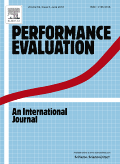
PERFORMANCE EVALUATION
Bridging Theory and Practice in Performance ResearchPERFORMANCE EVALUATION, published by ELSEVIER, is a prestigious journal that serves as a critical resource for researchers and professionals in the fields of Computer Networks and Communications, Hardware and Architecture, Modeling and Simulation, and Software. With its ISSN 0166-5316 and E-ISSN 1872-745X, this journal is recognized for its contribution to the advancement of performance assessment methodologies and empirical research. Holding a Q3 quartile ranking across multiple categories in 2023, PERFORMANCE EVALUATION is positioned as a valuable platform for disseminating high-quality studies that explore complex performance issues and innovative solutions. Operating from its base in the Netherlands, this journal emphasizes rigorous peer-review standards and enhances its relevance within the academic community by addressing crucial challenges and trends in technology. Stakeholders can access the wealth of knowledge published from 1981 through 2024 by exploring this journal, making it an essential tool for practitioners and scholars aiming to stay at the forefront of computer science research.

International Journal of Grid and Utility Computing
Bridging Theory and Practice in Computing TechnologiesInternational Journal of Grid and Utility Computing is a pioneering publication dedicated to advancing research in the domains of grid computing, utility computing, and their applications across various sectors. Initiated in 2005 and continuing through 2024, the journal is published by INDERSCIENCE ENTERPRISES LTD, a respected publisher known for its commitment to facilitating scholarly communication. With an ISSN of 1741-847X and an E-ISSN of 1741-8488, this journal, based in the United Kingdom, serves a global audience of researchers, professionals, and students. Although classified in the Q4 category across Applied Mathematics, Computer Science Applications, and Management Information Systems, the journal aims to bridge theoretical research with practical implementation, fostering interdisciplinary collaborations. Researchers looking for a platform to disseminate their work on grid technology and its utility in modern computing environments will find this journal an invaluable resource. The focus on innovative computing methodologies places it at the forefront of emerging trends and technology applications, despite the need for increased visibility in competitive metrics like Scopus rankings.

Human-centric Computing and Information Sciences
Championing Open Access for Global Knowledge ExchangeHuman-centric Computing and Information Sciences, published by the Korea Information Processing Society, represents a leading platform in the field of computer science, particularly focusing on the interaction between humans and computational systems. With an impressive Q1 ranking in the 2023 category of Computer Science (miscellaneous) and a commendable Scopus rank of #14/232 (94th percentile), this journal has established itself as a cornerstone for researchers and practitioners dedicated to advancing understanding in this vital area. Understanding the significance of making technology more accessible and effective for users, the journal has been an Open Access publication since 2011, promoting wide dissemination of knowledge without barriers. The journal's scope encompasses innovative methodologies, user experience design, and the integration of human factors into computing environments, making it essential reading for anyone interested in the intersection of technology and society. With all articles freely accessible, the journal not only contributes to scholarly discourse but also encourages collaboration among researchers worldwide, fostering further advancements in human-centric computing.

Journal of Grid Computing
Connecting Research and Industry in Grid ComputingThe Journal of Grid Computing, published by Springer, stands as a pivotal resource in the dynamic field of computer science, particularly within the realms of Computer Networks and Communications, Hardware and Architecture, Information Systems, and Software. With an impressive Q1 ranking across these categories in 2023, the journal exemplifies excellence and rigor, catering to a diverse readership from researchers to industry professionals. Established in 2003, this esteemed journal is anchored in the Netherlands and releases cutting-edge research that reflects trends and advancements in grid computing technologies. Researchers can gain insights through its vast contributions, while institutions benefit from its prestigious standing within the SCOPUS framework, boasting high percentile ranks in multiple computer science categories. Though not open access, the journal provides unparalleled access options for institutional subscribers, solidifying its importance as a gateway to innovative discoveries in high-performance distributed computing.
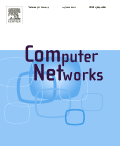
Computer Networks
Elevating Standards in Networking ResearchComputer Networks, a prestigious journal published by Elsevier, stands at the forefront of the field of computer networking and communications. Established in 1978, this journal has consistently provided a robust platform for the dissemination of high-quality research, currently holding a Q1 ranking in its category as of 2023, specifically within the Computer Science - Computer Networks and Communications sector, placing it in the top 10% of journals in its field (ranked #38 out of 395). With a focus on innovative networking technologies and fundamental theories, Computer Networks showcases original research articles, comprehensive reviews, and significant advancements that drive the academic community and industry practices forward. Although it follows a non-open access model, it remains widely accessible through various academic databases, ensuring that professionals, researchers, and students can engage with its valuable content. The journal's commitment to excellence contributes to its high impact factor, solidifying its role as an essential resource for those aiming to stay at the cutting edge of networking research.

Journal of Internet Technology
Shaping the Future of Computer Networks and CommunicationsThe Journal of Internet Technology (ISSN: 1607-9264, E-ISSN: 2079-4029) is a leading academic publication, fostered by the LIBRARY & INFORMATION CENTER at National Dong Hwa University, Taiwan. Established in 2004, the journal has become an essential resource for researchers, professionals, and students in the fields of Computer Networks and Communications and Software Development, achieving a commendable Q3 ranking in both categories as of 2023. With an impressive track record extending to 2024, the journal offers a platform for disseminating high-quality research and innovative ideas. Notably, it ranks #212 out of 395 in Computer Networks and Communications and #251 out of 407 in Software as per Scopus metrics. The journal remains committed to advancing knowledge and fostering interdisciplinary collaboration in the rapidly evolving digital landscape, making it a vital tool for those looking to stay at the forefront of internet technology research.
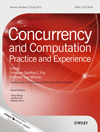
CONCURRENCY AND COMPUTATION-PRACTICE & EXPERIENCE
Advancing Knowledge in Computational InnovationCONCURRENCY AND COMPUTATION-PRACTICE & EXPERIENCE, published by Wiley in the United Kingdom, serves as a pivotal platform for advancing research and innovation in the fields of computational theory, computer networks, and practical applications of computer science. With an impressive impact factor and recognition in the Q2 category for disciplines such as Computational Theory and Mathematics, this journal attracts a diverse range of scholarly articles that address the current challenges and developments in these areas. It boasts a comprehensive viewership with options for Open Access, enabling wide dissemination of knowledge. Indexed by Scopus with notable rankings in multiple categories, including a remarkable position in Computational Theory and Mathematics (Rank #41/176), the journal not only elevates academic discourse but also fosters collaboration among researchers, professionals, and students alike. As it progresses toward its 2024 milestone, CONCURRENCY AND COMPUTATION-PRACTICE & EXPERIENCE remains dedicated to publishing high-quality research that prepares its readership for the evolving technological landscape.

International Journal on Information Technologies and Security
Advancing Knowledge in IT and SecurityInternational Journal on Information Technologies and Security, published by UNION SCIENTISTS BULGARIA, is a pivotal interdisciplinary journal that explores the rapidly evolving fields of information technology and security. With a robust ISSN of 1313-8251, this journal serves as a platform for researchers, professionals, and students to disseminate their findings and innovations in cybersecurity, data protection, and IT system integrity. The journal's commitment to open access enhances accessibility, ensuring that pivotal research reaches a broader audience, encouraging collaboration and advancement in these critical areas. As an invaluable resource for those engaged in the study and application of information security measures, the International Journal on Information Technologies and Security plays an essential role in shaping the discourse and driving forward the knowledge necessary to tackle today’s technological challenges.
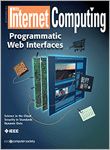
IEEE INTERNET COMPUTING
Connecting Research with Real-World ApplicationsIEEE Internet Computing is a prominent journal in the field of computer networks and communications, published by the esteemed IEEE Computer Society. With an impressive impact factor and ranking in the Q1 category for 2023, it stands out as a vital resource for researchers, professionals, and students alike, seeking to delve into the latest advancements and trends in internet computing. Since its inception in 1997, the journal has provided a platform for pioneering studies and insightful discussions that bridge theory and practice in the rapidly evolving digital landscape. The journal is indexed with an excellent Scopus rank of #77 out of 395, placing it in the 80th percentile of its category, which underlines its relevance and influence in the academic community. While it currently does not offer Open Access options, its rich archive of scholarly articles remains accessible to those affiliated with research institutions and libraries. Furthermore, the journal's comprehensive coverage continues through 2024, ensuring it remains at the forefront of the discipline.
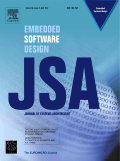
JOURNAL OF SYSTEMS ARCHITECTURE
Transforming Ideas into Architectural ExcellenceJOURNAL OF SYSTEMS ARCHITECTURE is a prestigious academic journal published by ELSEVIER, based in the Netherlands, that has established itself as a leading platform for research in the fields of Hardware and Architecture and Software. With an impressive impact factor and ranked in the Q1 category for both computer science sectors, this journal is recognized for its high-quality contributions, evidenced by its Scopus ranking of #32 in Hardware and Architecture and #74 in Software, placing it in the top percentiles of its field. The journal spans a wide range of topics central to systems architecture, focusing on innovative research that advances the understanding of computer systems and promotes future developments. Researchers, professionals, and students alike will find invaluable insights and emerging trends that address the challenges and opportunities within the rapidly evolving field of systems design and architecture. Spanning from 1996 to 2024, the JOURNAL OF SYSTEMS ARCHITECTURE continues to be a vital resource for those seeking to stay at the forefront of technology and research.